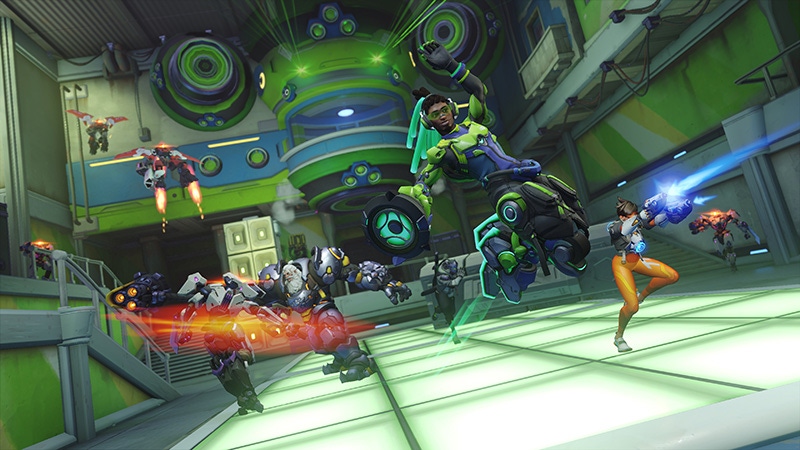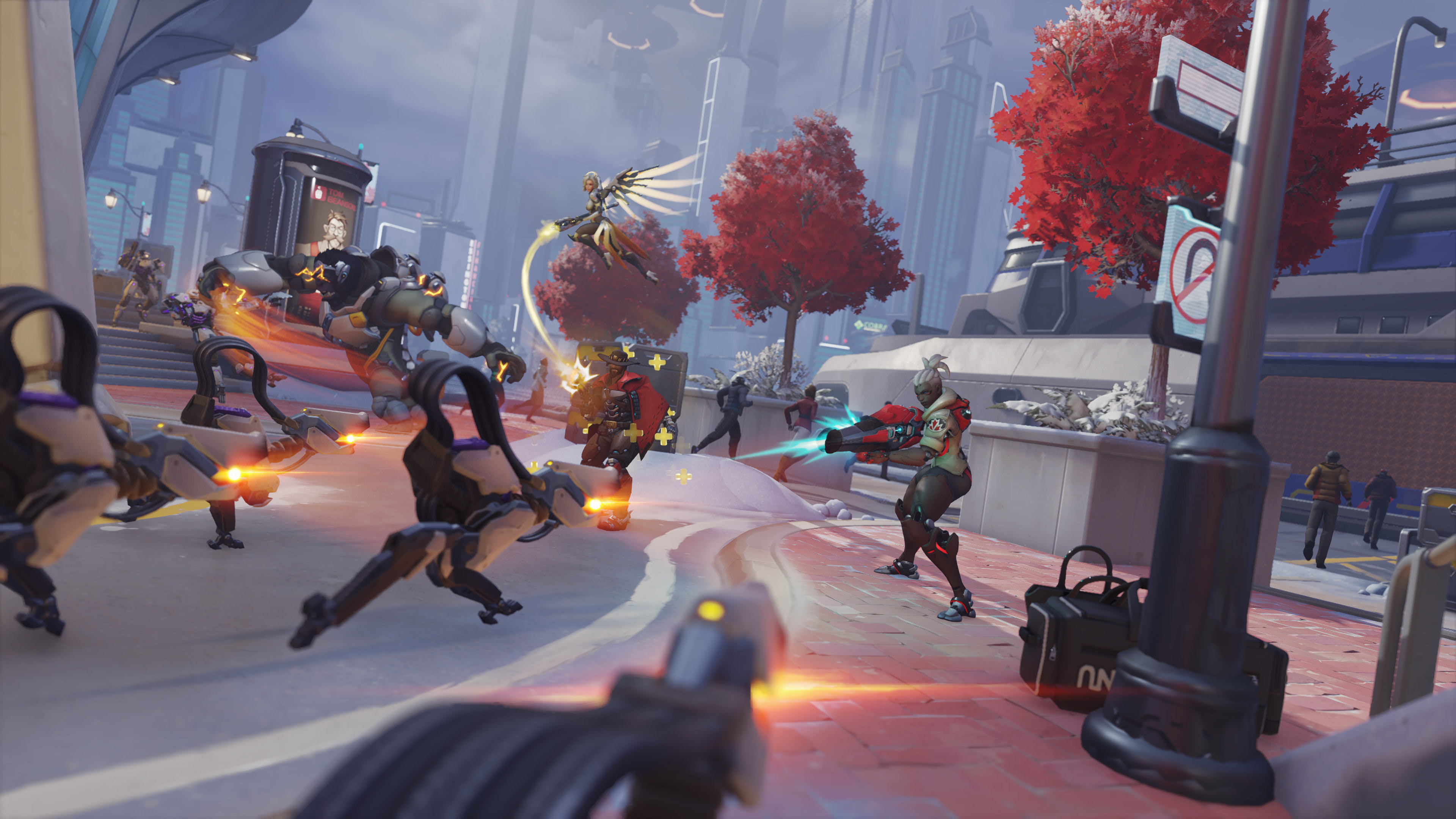Trending
Opinion: How will Project 2025 impact game developers?
The Heritage Foundation's manifesto for the possible next administration could do great harm to many, including large portions of the game development community.
Overwatch 2 director Aaron Keller shines more light on the major directional shift the game has taken since it was first announced.

The saga of Overwatch 2 has been one of the stranger ones in Blizzard's history. If you run the game all the way back to its origins, you'll remember that it rose from the ashes of a cancelled MMORPG codenamed "Titan," became the 2016 hero shooter Overwatch that whetted Activision's appetite for an esports franchise, and morphed into a free-to-play live service game that was initially pitched as a standalone sequel.
But that journey to becoming a live service shooter has been a bumpy one. And judging by new comments from Overwatch 2 game director Aaron Keller, Blizzard doomed itself to production peril when it first planned the sequel. One major contributing factor? The company didn't have a clear idea of what its players wanted from the series.
Keller explained this problem during a recent Overwatch 2 "summit" dedicated to the upcoming launch of the game's cooperative PvE story missions. He'd been discussing the recently-shared news that during the bulk of Overwatch and Overwatch 2's production, the team behind it operated under the mindset that the game could evolve into the MMORPG it had been salvaged from. "I think one of the things that [design approach] did was that—it was a little blind to who our players were and who our fans were at the time," he said. "The players of Overwatch at the time and the players of Overwatch right now are people who like playing a hero-based, team-based competitive shooter."
What Keller was describing was not a mere philosophical exercise—since Overwatch 2's launch, Blizzard's shifting priorities led to the cancellation of a single-player "Hero Mode" that was a core feature announced for the sequel when the game was unveiled at BlizzCon 2019. Blizzard had already undone many of the key features promised in that announcement, such as continued support of the first Overwatch, and the promise that Overwatch 2 would be a purchasable game just like its predecessor.
Keller said the decision to drop Hero Mode was "difficult," but that it was "more important to make something our players wanted and needed at that time." "It had to be what the development team would be doing in the future," he added.
Keller's transparency about Overwatch 2 is unusual for the video game industry. Many major product pivots are done under a cloak of secrecy—ones so vast that even developers implementing the changes aren't able to discuss them until years after they take place (or ever, if their employer is especially litigious).
Keller's honesty on this topic is commendable, but there's something unsettling about his blunt admissions. Who at Blizzard was ultimately responsible for the miscalculation Keller described, and how did that decision come to pass?
Key leaders on the Overwatch 2 development team have exited the company since 2020, including Overwatch game director Jeff Kaplan and executive producer Chacko Sonny. Keller replaced Kaplan and guided Overwatch 2 over the finish line, so it's unlikely he was describing his own mistake. The vagueness risks pinning the blame on departed staffers who have fewer opportunities to share their experience from that time.

The question of who "was blind" to what players of the team-based hero shooter wanted from an Overwatch sequel isn't just about the blame game. The choices made about Overwatch 2 had far-reaching implications for the developers working on the game, Activision's ambitions for a high-profile esports league, and other stakeholders in the video game world.
For now, Blizzard seems to have finally found a north star for its beleaguered (but well-performing) hero shooter. Keller said that he doesn't think of Overwatch 2 as an MMORPG, and that Blizzard's priority is to "remain true to the game," and to continue to support the game "that our players love right now."
You May Also Like